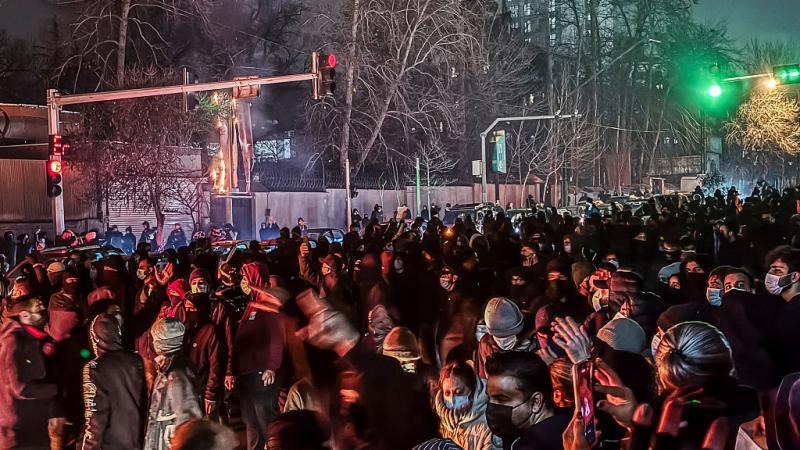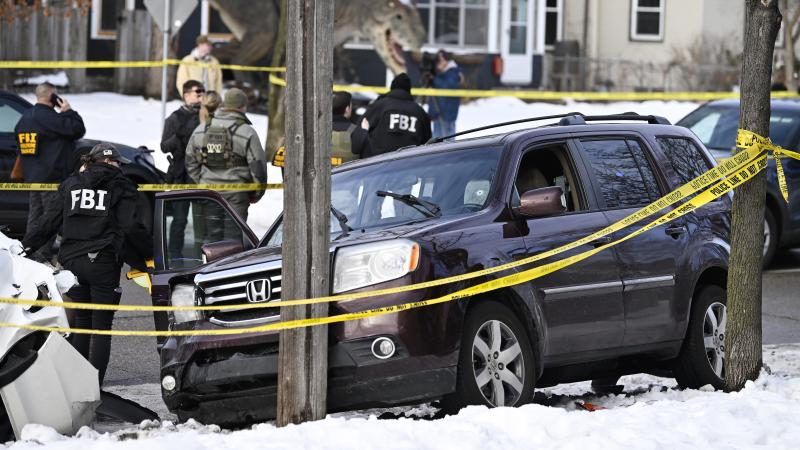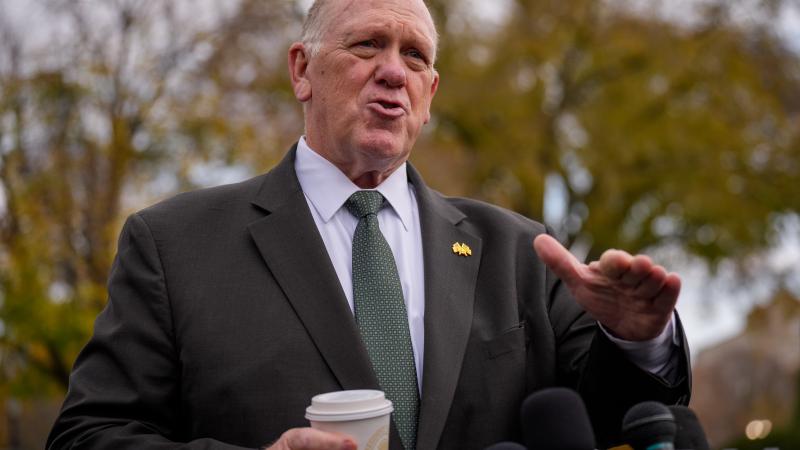Courts let red states ban 'gender affirming' drugs for kids, keep boys out of girls' restrooms
Parents cannot "veto legislative and regulatory polic[i]es about drugs and surgeries permitted for children" like Oklahoma's minor transition ban, 10th Circuit finds. Restroom privacy goes beyond the stall, judge says in Idaho challenge.
Red states are getting the green light from the Supreme Court and an appeals court disproportionately overturned by SCOTUS to enforce laws that prioritize sex over gender identity in medicine and education, reinforcing a growing divide between conservative and liberal jurisdictions on immutable versus fluid traits.
The 10th U.S. Circuit Court of Appeals refused to block Oklahoma's ban on medicalized gender transitions for minors, upholding a lower court ruling that it had delayed reviewing to await the Supreme Court's decision on Tennessee's "substantially similar" law. The panel was composed of judges nominated by presidents George W. Bush, Obama and Trump.
The pseudonymous minors seeking continued access to puberty blockers and cross-sex hormones to treat diagnosed gender dysphoria under the equal protection clause of the 14th Amendment, and their parents under its due process clause, are unlikely to succeed on the merits, the Denver-based appeals court ruled.
A federal judge in Idaho won't let Boise High School transgender students use opposite-sex restrooms as their lawsuit continues against two-year-old SB 1100. The 9th Circuit this spring refused to block the broader law, which requires students to use the public school restrooms, changing areas, locker rooms and overnight accommodations for their sex.
U.S. District Judge David Nye gave a lengthy explanation of students' privacy interests throughout a restroom, not just when relieving themselves in individual stalls, pushing back on the challengers' emphasis on hiding "unclothed bodies" in the 9th Circuit's analysis.
State Attorney General Raul Labrador said Nye's ruling affirms "Idaho’s law reflects biological reality, protecting all students’ privacy and safety" and is "another victory for commonsense [sic] and the dignity of women and girls against activists seeking to push a harmful agenda."
Protecting kids beats anti-trans 'contemporary statements from a few legislators'
Oklahoma's SB 613 "discriminates based on age and medical purpose and satisfies rational basis review," the 10th Circuit said Wednesday, importing the SCOTUS findings about Tennessee's minor transition ban and the low judicial threshold under which it was evaluated, which courts use for laws that don't affect a protected class.
"The district court found gender transition procedures for minors may result in permanent health risks to children including impaired brain development, poor educational development, impact to bone density, underdeveloped genitalia, and infertility," and any "medical and scientific uncertainty" about them weighs in favor of legislative judgments, the ruling said.
"In this continuing and evolving area of medicine," in light of the "ongoing debates among medical professionals," the panel said "Oklahoma has a legitimate interest in the health and welfare of its children and using age to determine the accessibility of gender transition procedures rationally relates to that legitimate interest."
Little is different between the Tennessee and Oklahoma laws, so the SCOTUS analysis "controls," the ruling says.
There is a "lack of identity" between transgender status and "the excluded medical diagnoses" of gender dysphoria, gender identity disorder and gender incongruence for which blockers and hormones are prohibited, reflecting the conclusion of SCOTUS decades earlier that "not every legislative classification concerning pregnancy is a sex-based classification."
The panel also dismissed the "contemporary statements from a few legislators" as relevant to the challengers' argument that the law was motivated by anti-trans animus, citing statements by other lawmakers and the governor that focused on the health and safety of kids and the law's limitation on children, not transgender people as a whole.
SCOTUS has determined parents do not have an "absolute" right to direct their children's medical care, such that they could "veto legislative and regulatory polic[i]es about drugs and surgeries permitted for children," and medicalized gender transition for minors is nowhere near a "deeply rooted tradition" in America, the ruling says.
The ACLU, representing the transgender minors and their parents, called the ruling "another tragic result of the Supreme Court’s errant and harmful ruling in Skrmetti," the Tennessee case, and that it was still discussing "next steps" with its clients.
The next tragic result, in the ACLU's eyes, may be the 8th Circuit upholding Arkansas's ban, which Attorney General Tim Griffin and Solicitor General Autumn Hamit Patterson called "substantively identical” to Tennessee's. It was permanently blocked by President Clinton-nominated Judge James Moody two years ago.
The St. Louis-based appeals court, which heard oral arguments more than a year ago, sought supplemental briefing from the parties in the wake of Skrmetti. Both sides told the court the law should be evaluated under rational basis review, according to the Arkansas Advocate.
The ACLU, again representing the plaintiffs, argues it should be sent back to Moody to consider evidence the judge didn't use to block the law, including "legislators’ negative attitudes about transgender people" that spurred Act 626's passage.
"Many of the very assertions about gender-affirming medical care for minors that were offered as justifications for the Tennessee law and accepted as rational bases by the Supreme Court in Skrmetti were refuted or found to be equally applicable to non-prohibited care in the district court’s findings of fact after trial in this case," the ACLU argues.
'Privacy is not limited to obscuring the visual line of sight'
Nominated by President Trump, Judge Nye previously blocked another Idaho law prioritizing sex over gender identity, the Fairness in Women's Sports Act, but got in trouble with a 9th Circuit panel for not clearly stating whether the whole law or just a portion was blocked, or whether it applied to just the transgender plaintiff or all males seeking to compete as women.
The panel ordered Nye to reconsider in light of SCOTUS slapping down another district judge, through its emergency docket, for totally blocking Idaho's ban on so-called gender-affirming care for minors rather than just for the male plaintiffs seeking estrogen.
In Nye's ruling Thursday on the student privacy law, he acknowledged that SCOTUS will review his ruling against the no-males-in-women's sports law "and will, in all likelihood, address this question once and for all" of whether "transgender individuals are a suspect or quasi-suspect class," which would raise the judicial threshold to "intermediate" scrutiny.
While he had deemed the women's sports law likely unconstitutional because it requires an "intrusive sex verification process" only for women's sports when an athlete's claimed female sex is challenged, Nye emphasized the intrusiveness of experiencing the opposite sex in a school restroom to deny the limited injunction sought in the SB 1100 challenge.
The school's Sexuality and Gender Alliance, whose members seek to use opposite-sex restrooms, isn't likely to win because Idaho "has outlined a legitimate governmental interest –privacy – related to the action it took in passing S.B. 1100," Nye ruled.
"Separating restrooms by biological sex has been common for centuries" due to "biological differences … deserving of privacy," and regardless of whether the law is a "perfect policy," it is substantially related to the state's interest, he said.
Nye practically accused the plaintiffs of gaslighting him on the 9th Circuit's refusal to block the broader law, by falsely claiming the appeals court said Idaho "may" have an interest in "students' bodily privacy" in "some facilities" and that the panel "expressly declined" to uphold the law specifically applied to restrooms.
Echoing SCOTUS criticisms of lower courts for evaluating particular applications of social media content moderation laws rather than the "facial" challenges brought by plaintiffs, Nye said SAGA must live with the consequences of challenging the Idaho law on its face and the 9th Circuit fully affirming his ruling that applies to "all aspects" of the law.
The appeals court acknowledged the law's various applications "do not present uniform risks of bodily exposure," and the "most strongly implicated" privacy interest is in locker rooms and communal showers without "curtains or stalls," but said SAGA's facial challenge means it must show none of them is constitutional, Nye emphasized.
Even under intermediate scrutiny, which Nye said he'll apply until SCOTUS deems the 9th Circuit's holding "clearly irreconcilable" with Skrmetti, SAGA can't get its members access to opposite-sex restrooms, the judge said.
"Privacy is not limited to obscuring the visual line of sight of others when a person is relieving themselves in a restroom stall," and the state claims some restroom stalls at Boise High School have a "gap" to see in, he said. "Other personal bodily functions and duties" in the restroom implicate privacy interests, which are more important for "kids who are still developing."
Nye cited other privacy interests: "People often use the common areas of a restroom (as well as a stall) to change items of clothing or undertake other personal hygiene duties."
Finally, Nye rejected SAGA's Title IX claim as applied to restrooms because the 9th Circuit already said it hadn't shown the state had "clear notice" when it accepted federal funding "that Title IX prohibits segregated access to the facilities covered by S.B. 1100 on the basis of transgender status."
SAGA must stop beating a dead horse by contesting the court's interpretation of "sex" in Title IX, he said. As the 9th Circuit recognized, "contemporary dictionary definitions" define it as sex at birth and Title IX's implementing regulations have always "authorized schools to maintain sex-segregated facilities."
The Facts Inside Our Reporter's Notebook
Videos
Links
- appeals court disproportionately overturned
- Supreme Court's decision on Tennessee
- 9th Circuit this spring refused to block
- 10th Circuit said Wednesday
- ACLU
- Attorney General Tim Griffin and Solicitor General Autumn Hamit Patterson
- permanently blocked by President Clinton-nominated Judge James Moody
- supplemental briefing from the parties
- Arkansas Advocate
- Judge Nye previously blocked another Idaho law
- got in trouble with a 9th Circuit panel
- SCOTUS slapping down another district judge
- Nye's ruling Thursday
- SCOTUS will review his ruling
- Echoing SCOTUS criticisms of lower courts















